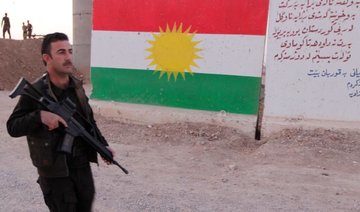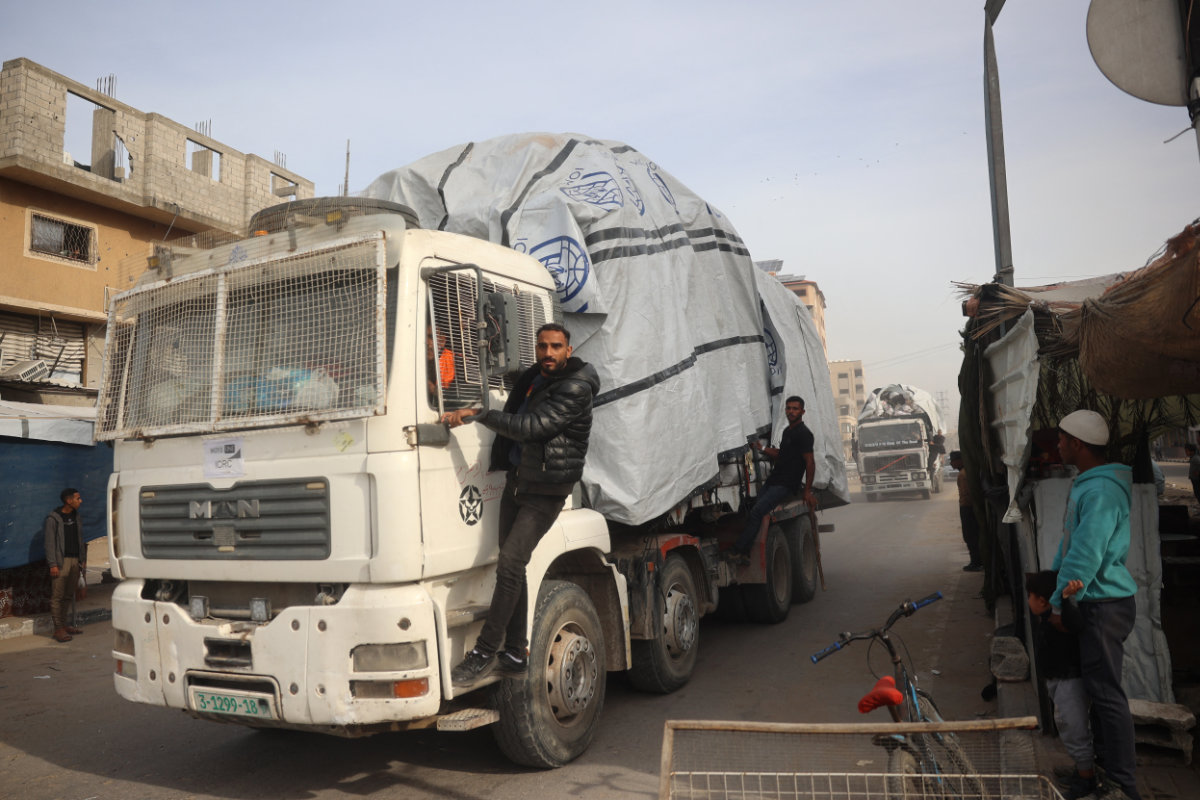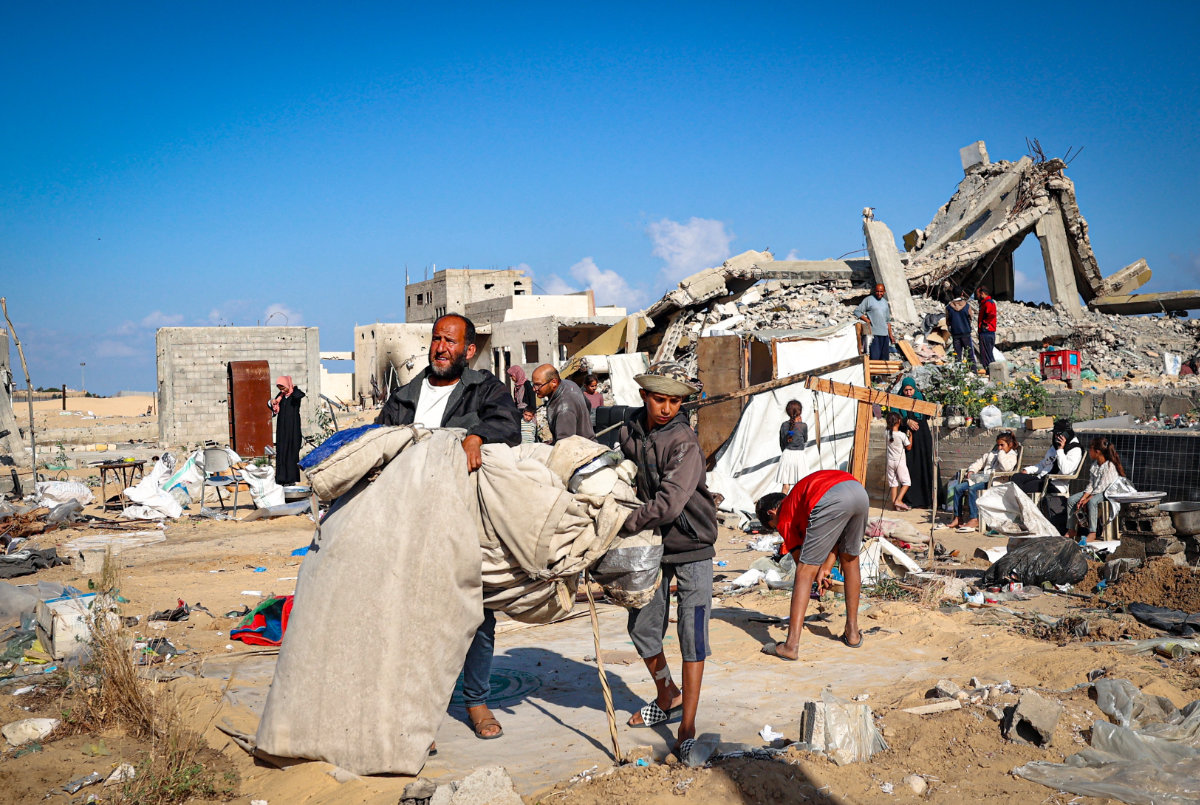BAGHDAD: Iraqi officials said Sunday that foreign Kurdish forces were present in the province of Kirkuk in what amounted to a “declaration of war,” dramatically raising the stakes in its dispute with Iraq’s Kurds.
Kurdish officials denied Baghdad’s claim that forces from Turkey’s outlawed Kurdistan Workers’ Party (PKK) were among its peshmerga fighters in an armed standoff with Iraqi troops in the oil-rich province.
But the National Security Council headed by Iraqi Prime Minister Haider Al-Abadi said PKK fighters were among “fighters not belonging to regular security forces in Kirkuk,” a move it called “a dangerous escalation.”
“It is impossible to remain silent” faced with “a declaration of war toward Iraqis and government forces,” it said in a statement.
“The central government and regular forces will carry out their duty of defending the Iraqi people in all its components including the Kurds, and of defending Iraq’s sovereignty and unity,” it added.
General Jabar Yawer, chief of the peshmerga ministry, rejected the Iraqi claims. “There are no PKK forces in Kirkuk, but there are some volunteers who sympathize with the PKK,” he said.
Baghdad’s statement came just hours before the expiry of a new deadline for Kurdish peshmerga fighters to withdraw from disputed areas they took in 2014 during the fightback against the Islamic State jihadist group.
Crisis talks on Sunday made little headway in resolving the standoff between Kurdish and Iraqi forces in the province, three weeks after a contested Kurdish independence vote.
Fruitless talks
Iraqi President Fuad Masum, himself a Kurd, met with Iraqi Kurdish leader Masoud Barzani in Dukan in Sulaimaniyah province for several hours, after an overnight deadline for Kurds to withdraw was extended by a day.
A statement after the talks made no mention of the call to pull the peshmerga back, instead renewing an offer of dialogue and warning that “military intervention or troop movements” by Iraqi forces would wreck hopes of a peaceful solution.
Hemin Hawrami, an adviser to Barzani, said in a tweet that the main Kurdish parties, the Kurdistan Democratic Party (KDP) and Patriotic Union of Kurdistan (PUK), had agreed to “reject any demands to nullify the referendum results” and to “refuse preconditions” on talks.
Baghdad has demanded the Kurds scrap the results of the September 25 non-binding referendum that produced a resounding “yes” for independence for the autonomous Kurdish region of northern Iraq.
Tensions have soared in the wake of the vote, with the crisis raising fears of fresh chaos just as the country’s forces are on the verge of routing Daesh militants from the last territory it controls in Iraq.
Forces ready to attack
In Taza Khormatu, a town just south of Kirkuk, an AFP photographer saw tanks, armored vehicles and artillery deploying on Sunday.
As well as heavily armed federal troops, members of the Hashed Al-Shaabi, or Popular Mobilization forces, which are dominated by Iran-backed Shiite militias, have massed around Kirkuk.
Long claimed by the Kurds as part of their historic territory, the province has emerged as the main flashpoint in the dispute.
Polling during the referendum was held not only in the three provinces of the autonomous Kurdish region but also in adjacent Kurdish-held areas, including Kirkuk, that are claimed by both Baghdad and Iraqi Kurdistan.
The referendum was declared illegal by Baghdad and held despite international opposition.
The Kurds control the city of Kirkuk and three major oil fields in the province that produce some 250,000 barrels per day, accounting for 40 percent of Iraqi Kurdistan’s oil exports.
The fields would provide crucial revenue to Baghdad, which has been left cash-strapped from the global fall in oil prices and three years of battle against Daesh. Iraq is also demanding the return of a military base and a nearby airport, according to the Kurds.
Abadi said this week that he was “not going... to make war on our Kurdish citizens” but has also rejected any negotiations until the independence vote is annulled.
Washington has military advisers deployed with both sides in the standoff and Defense Secretary Jim Mattis said on Friday the United States was working to reduce tensions.
Tensions have also risen between the Kurds and Ankara and Tehran since the independence vote, which both countries fear will stoke the separatist ambitions of their own sizeable Kurdish minorities.
Iraq’s foreign ministry said Iran on Sunday closed its border crossings with Iraqi Kurdistan at Baghdad’s request. A local Kurdish official confirmed the crossings were closed, though Tehran earlier denied the move had been taken.
(Ahmad Al-Rubaye reported from Taza Khurmatu)


































